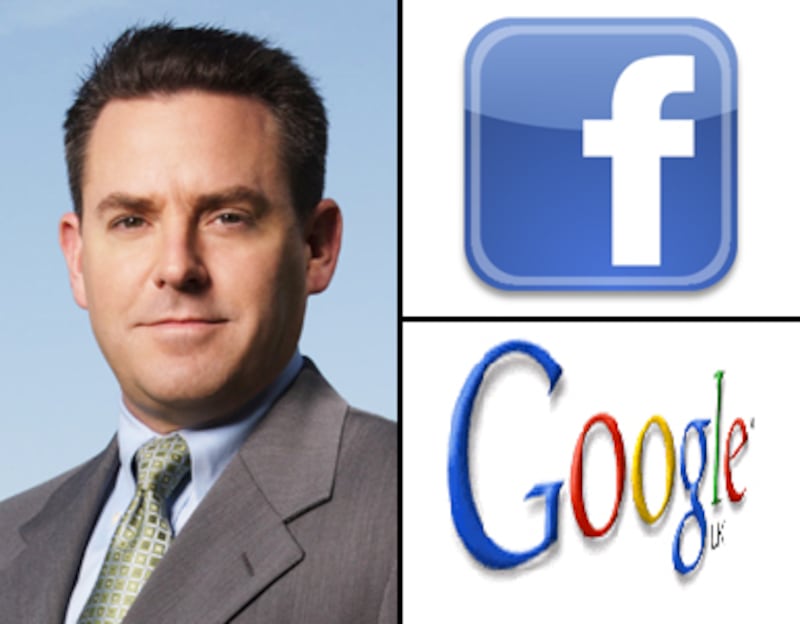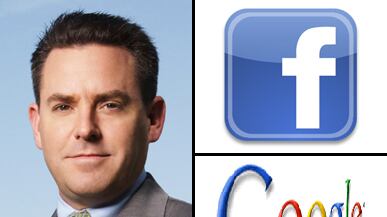The stunning story of Facebook's attempt to smear Google with exaggerated claims of privacy invasion got still more dramatic yesterday as the public relations agency hired to do the dirty work turned on Facebook, laying the blame for the boneheaded idea squarely at the feet of Mark Zuckerberg's band of corporate communications commandos.
But Facebook gave Wired a statement saying that it did not authorize the PR firm Burson-Marsteller to conduct a smear campaign. And one top official at the social networking giant, who requested anonymity because he wasn't authorized to talk on the record, was more forceful to me, saying that the PR firm had been "inept".
Burson and Facebook have been taking heat after The Daily Beast revealed Thursday that Facebook had hired Burson to run a "whisper campaign" against Google, urging reporters and bloggers to write negative stories about Google's social networking practices. Burson even offered to help a blogger write an op-ed and to place the article in various publications.
The Burson flacks pitching the story would not tell reporters who their client was—something that rarely happens, and which violates professional guidelines set out in the Code of Ethics of the Public Relations Society of America (PRSA), a professional association for PR people.
In a statement published Thursday on the Burson-Marsteller website, the agency said it should not have caved in to Facebook's "request that its name be withheld."
"This was not at all standard operating procedure and is against our policies, and the assignment on those terms should have been declined," the Burson statement reads. "When talking to the media, we need to adhere to strict standards of transparency about clients."
In other words: Burson threw their client under the "we were just following orders" bus, contradicting Facebook's statement that "no 'smear campaign' was authorized or intended."
PR flacks aren't shocked that Facebook would try to run a negative campaign against Google. But they are chortling about how ham-handed Burson's PR guys were.

Silicon Valley marketers have been watching the scandal unfold with a kind of morbid glee. Who's lying? The PR execs I've talked to don't buy the idea that Burson acted on its own, without direction from Facebook. "No way Burson-Marsteller does something like this rogue," says one veteran Valley agency executive, summarizing the consensus among that group. Another agency executive allowed that there might be a gray area: "Perhaps there were a few winks and nudges and nods so things could get rolling with a big dollop of plausible deniability."
Regardless, the flacks aren't shocked that Facebook would try to run a negative campaign against Google. That kind of stuff happens all the time in the PR business, they say. Rather, they expressed surprise at how ham-handed Burson has been.
The two Burson operatives who ran the campaign—Jim Goldman, a former CNBC tech reporter, and John Mercurio, a former political reporter—are both former journalists new to Burson and new to PR. Their biggest mistake: reaching out to a blogger they didn't know with an email pitch that contained embarrassing information, including the offer to help write an op-ed bashing Google. The blogger rejected their offer, then turned around and posted the embarrassing emails online.
But more surprising to industry observers: that Burson would publicly blame its client—not a very good strategy to keep or solicit other clients. Bill Hughes, chief communications officer at CA Technologies, once an executive at Burson, says the agency would have been wise to just keep quiet, if only because putting out a statement to explain what happened only keeps the story alive. "One thing I've learned in 25 years of doing PR is, When you're explaining, you're losing," says Hughes.
I asked Burson's spokesman whether Goldman and Mercurio are still working for the agency. The spokesman's response: "We're not commenting." There's also been speculation that Elliot Schrage, the VP of global communications at Facebook, might fall on his sword.
My gut tells me he won't, and that Facebook will do what it always does when it gets into trouble: refuse to apologize, admit no wrongdoing, stop talking and wait for the storm to blow over.
If so, that would be the first smart move they've made in this sorry episode.
Dan Lyons is technology editor at Newsweek and the creator of Fake Steve Jobs, the persona behind the notorious tech blog, The Secret Diary of Steve Jobs. Before joining Newsweek, Lyons spent 10 years at Forbes.






